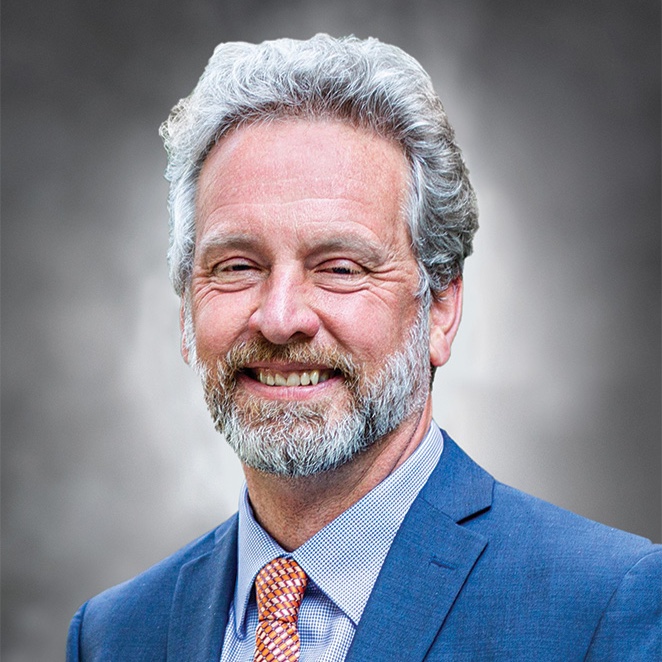Dr. David Hyndman
- Dean of the School of Natural Sciences and Mathematics
- Professor of Sustainable Earth Systems Sciences
- Francis S. and Maurine G. Johnson Distinguished University Chair

In 2010 Maurine Johnson, wife of the late Dr. Francis “Frank” Johnson, UT Dallas’ first acting president, became a member of the Legacy Society with a planned gift intended to create the Francis S. and Maurine G. Johnson Distinguished University Chair in the School of Natural Sciences and Mathematics. Upon her death in 2016 at the age of 97, Johnson’s gift of $5.5 million became the largest planned gift in UTD’s history. In addition to establishing the original distinguished chair, the bequest allowed the University to create seven additional Francis S. and Maurine G. Johnson Chairs to support the School of Natural Sciences and Mathematics.
“I have been impressed by the exceptional growth trajectory of the University and the positive and forward-thinking views of faculty, staff, students, alumni and administrators to advance UTD’s future.”
From an early age, Dr. David Hyndman was interested — and encouraged — in science. Growing up in Missoula, Montana, he would accompany his geologist father out into the mountains to collect clean samples of granite for his father to analyze and age-date. For an eighth-grade science project, he rode his bike nearly every day to collect basic data about changes along a small stream.
“It was a great year to do this because we ended up having a 100-year flood, and this little stream turned into a massive torrent,” Hyndman recalled. “The flooding caused all kinds of damage, and I saw how the channel changed. It was inspiring to me. At that point I knew I wanted to study water and the environment.”
As a geoscientist with 25 years of experience as a researcher, educator and academic administrator, Hyndman joined UT Dallas in 2021 as dean of the School of Natural Sciences and Mathematics.
Before joining UT Dallas, he was chair of the Department of Earth and Environmental Sciences at Michigan State University for a decade. He had previously worked part time as a hydrologist for the U.S. Geological Survey before joining MSU as an assistant professor in 1995. He received his undergraduate degree in hydrology and water resources from the University of Arizona and his master’s and doctoral degrees in hydrogeology from Stanford University.
In 2022, he was elected a fellow of the American Association for the Advancement of Science.
Hyndman is an expert in hydrogeology, the study of groundwater and how water gets into the ground, how it moves under the surface and how it interacts with the surrounding soil and rock. His research focuses on developing novel methods to characterize the aquifers that store and transmit water supplies critical to human and ecological health, and quantifying how human activity, such as changes in climate and land use, impact the water cycle.
“We call ourselves hydrogeologists because we work at the interface between water and the media that water is in,” Hyndman said.
His team of students and postdoctoral researchers includes members with expertise in ecology and agriculture, as well as those who study how chemicals and nutrients move in water through ecosystems.
“My research group is trying to understand how human activities affect water systems and water use, and is helping those who manage those resources to use them better so we can extend the useable lifespan of water supplies,” he said.
The interdisciplinary nature of his team’s research and the collaboration in his group are reflected in the larger group of faculty and students he leads as dean.
“The School of Natural Sciences and Mathematics is very well positioned to have people working across departments and across schools, as well as beyond UT Dallas, to build teams that can conduct societally relevant science and address really important problems,” he said.
In addition to more than 100 peer-reviewed journal articles, Hyndman has published a textbook, Natural Hazards and Disasters, now in its fifth edition, which he co-wrote with his father, Dr. Donald Hyndman.
In 2002 Hyndman was the Henry Darcy Distinguished Lecturer in Groundwater Science for the National Ground Water Association, and in 2006 he was elected a fellow of the Geological Society of America. He has served as associate editor of the journals Water Resources Research and Groundwater.